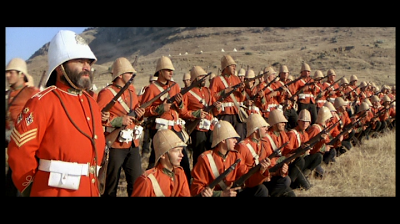
News from the front today. First, Glenn Reynolds explains where Trump came from.
The thing is, we had that movement. It was the Tea Party movement. Unlike Brooks, I actually ventured out to “intermingle” with Tea Partiers at various events that I covered for PJTV.com, contributing commentary to the Wall Street Journal and the Washington Examiner. As I reported from one event in Nashville, “Pundits claim the tea partiers are angry — and they are — but the most striking thing about the atmosphere in Nashville was how cheerful everyone seemed to be. I spoke with dozens of people, and the responses were surprisingly similar. Hardly any had ever been involved in politics before. Having gotten started, they were finding it to be not just worthwhile, but actually fun. Laughter rang out frequently, and when new-media mogul Andrew Breitbart held forth on a TV interview, a crowd gathered and broke into spontaneous applause. A year ago (2009), many told me, they were depressed about the future of America. Watching television pundits talk about President Obama’s transformative plans for big government, they felt alone, isolated and helpless.
Bingo !
Now, we have Act Two. Will Hillary’s “Thin Blue Line of rust belt states hold ?
Lt William Vereker, on a routine patrol from the British camp at Isandlwana looked down into the Ngwebeni valley to find it boiling with the hitherto unseen main Zulu Army of 20,000 men.
As in 1879 the political scouts are rushing back to inform the camp of the unanticipated development. Shocked but still undaunted, the pundits remain confident that the threat can be stopped by the Democrat “Blue Wall” in the industrial and upper Midwest. There, media artillery and the technologically superior liberal ground game are expected to hold the line against the angry white voter.
Read the rest, as Glenn says.
Now, we have the horrified GOPe. To Peter Wehner, Trump is the scary black face in the forest.
It is stunning to contemplate, particularly for those of us who are lifelong Republicans, but we now live in a time when the organizing principle that runs through the campaign of the Republican Party’s likely nominee isn’t adherence to a political philosophy — Mr. Trump has no discernible political philosophy — but an encouragement to political violence.
Mr. Trump’s supporters will dismiss this as hyperbole, but it is the only reasonable conclusion that his vivid, undisguised words allow for. As the examples pile up, we should not become inured to them. “I’d like to punch him in the face,” Mr. Trump said about a protester in Nevada. (“In the old days,” Mr. Trump fondly recalled, protesters would be “carried out in a stretcher.”)
OMG! What happened to “hit back twice as hard!” or “Bring a gun to a knife fight?” Rudeness will not be tolerated in the GOPe.
Read more
